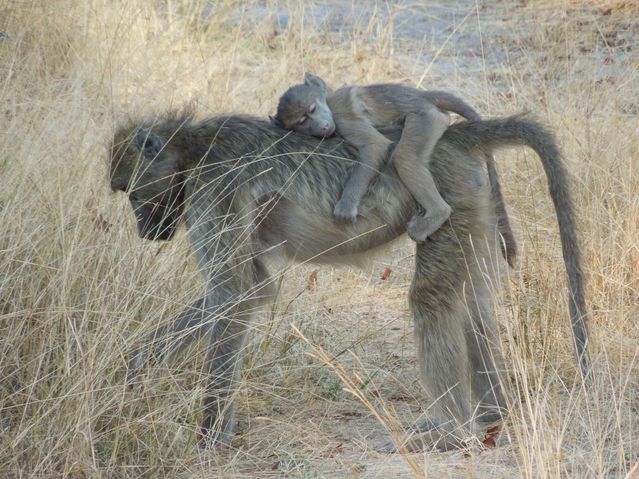Career
Find Yourself a Mentor for Life
And pass on what you have learned to your mentee.
Posted June 25, 2018

Recently my husband and I spent a few days in an Australian university town where we lived for five years from 1974. We still have a few friends there from those times, and because it is a university town, other academic friends have moved there since. It was only later when reflecting on our holiday that I realised that two of the highlights for us while there involved past important mentoring relationships. We stayed for five wonderful days with one of my Ph.D. students from the nineties; she has long been a well-known academic, teacher, and mentor herself, but continues to think of me as her mentor. It is serendipitous that she and her husband now live in this Australian city; she lived in Auckland when I was her supervisor and mentor. We also visited Donald, my husband’s advisor and mentor from the seventies; an incredible man now in his early nineties who, back in the 1970s, employed my husband as a research fellow, welcomed our family to the town, and most importantly of all became a mentor for my husband. Like Anne and I, they have kept in touch for all these years.
I talked with Anne about her many research and clinical students over her career, and knowing the enormous amount of time and effort as well as caring she puts into her students, told her how lucky I thought these students were. She looked at me in surprise and told me, genuinely I have no doubt, that she learned how to be a supervisor and mentor from me and Mike (her other Ph.D. supervisor and also, a few years before that, my own Ph.D. supervisor and mentor!) If I were asked to name my mentors over my long career, Mike would be at the top, and I would say I learned from his modeling how to mentor my own students. Never as well as he mentored me, and Anne, and literally hundreds of students at different levels, but something of his style and values and belief in each of his students and his pride in their achievements must have rubbed off.
My husband, when talking to Donald, thanked him for all he had given him, and Donald looked astonished. He too hadn’t realised just how important his mentoring was, not only with respect to how to come up with good research ideas, carry out the research and analyze it, and write and disseminate the findings, but also how to have a relationship with one’s students—and indeed one’s entire department and all the staff from the most senior academics to the technicians and tea ladies—such people existed in those days—that is inspiring, respectful, and caring rather than arrogant and uncommitted.
The commonly understood definition of the mentoring relationship is something along the lines of the term as expressed in the Shorter Oxford English Dictionary: “An experienced and trusted adviser or guide; a teacher, a tutor; an experienced person in a company, college, etc. who trains and counsels new employees or students.”
Often the mentor is older than their mentee or protégé but by no means always, especially in today’s digital world. For example, younger people in an IT company may find themselves mentoring older people who learned their trade or profession before the age of desktop computers. This type of mentoring relationship may be narrower in concept than the mentoring relationships I talked about from my own experience, as a younger person may not be someone who can mentor an older person when it comes to values, and how to "manage" staff, for example.
Almost any worthwhile career or life decision you make will benefit from finding a mentor, and it is never too early or late to start. We have all heard of those heartwarming stories where retired people mentor street kids and both benefit in multiple ways.
Mentorship is a relationship, that is, a two-way exchange. Most of that exchange is positive. I can think of no negatives for the two people involved in a true mentoring relationship, nor for the continuation of this mentoring down the line. For the mentee it is like having the best possible parent but without the responsibilities of having to look after that parent when they are old and frail, and for the mentor it is like having a child who grows up with the values you hold dear, and makes you so very proud.
(Of course, mentorship has a dark side because of its power; for example if a dictator takes on the mentoring of a protégé with great success, that won’t be a happy outcome for the people and systems they can influence. But nevertheless, even in this situation, for the two people involved in the mentoring relationship, it is likely seen as mostly positive.)
I looked up quotes about what it is to be a mentor, as the dictionary quotes do not capture the emotional depth and enduring nature of the finest mentorships.
Here is one that touches me, a quote I found on Goodreads from a woman I don’t know, so thank you to Mitta Xinindlu who wrote about mentoring: “I have left you a path, I hope you find it.”
And from the late Pat Conroy, one of my favorite authors: “Teach them the quiet words of kindness, to live beyond themselves. Urge them toward excellence, drive them toward gentleness, pull them deep into yourself, pull them upward toward manhood, but softly like an angel arranging clouds. Let your spirit move through them softly.” (From ‘The Prince of Tides.’)
It is not so easy to find quotes about the value mentors gain from their relationship with their mentees, but from my own experience the benefits are every bit as precious for the mentor as for the mentee. A mentor is inspired by their mentee’s ideas, energy, and enthusiasm; learns from teaching and modeling; feels honored and privileged if their mentee becomes a better person and a good mentor themselves in part as a result of their mentorship; feels useful into old age; has their own intellectual and emotional abilities challenged and enhanced by their mentee’s curiosity and needs; feels respected and cared for; and feels very proud of their mentee’s achievements.
So take out a pen and paper, or digital device (!) and
(i) write down all the mentors you have had so far, from that very special teacher when you were ten, to a loved grandparent or aunt, your sports coach, the person who showed you why insects, or music, or books, or archeology was exciting, your academic or clinical supervisor, writing guru, life coach…
(ii) Now write down what they did for you, from the specialist knowledge to the being-a-better-person benefit.
(iii) Write down how you have passed those gifts they gave you onto others, and how you might do this into the future.
(iv) Next write down what happened to your most important mentors or mentees; where are they now; are you still in touch? And if you aren’t, how could you reconnect? If you did what would you like to say to them? Then perhaps you will say it, or write it in a card or letter (preferably not an email!) and post it, or better still, go and visit them.
Wherever you are in life, it is never too early or too late to seek out a mentor, seek out mentees, and when you have found a good match, cherish it and keep in touch long after the active mentorship phase has passed.




